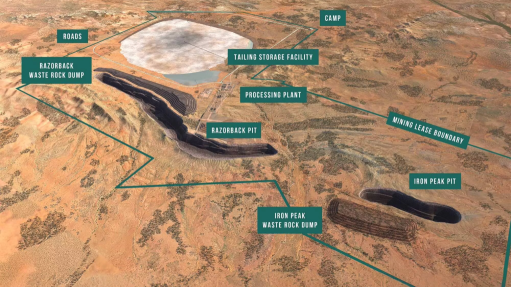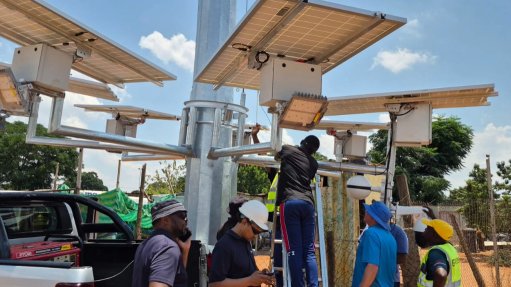Organisations welcome Treasury's decision not to increase VAT, but questions remain
Various organisations have welcomed the National Treasury’s withdrawal of the proposed value-added tax (VAT) increase of 0.5 percentage points this year and next and that VAT will be maintained at 15%.
Business organisation the South African Chamber of Commerce and Industry (Sacci) commented said that a Budget should serve as a management information tool that gives insight that leads to management action.
“Data and analytics will help the country to get a grasp of what is really happening with expenses because, at this time, this aspect is not clear,” it says.
“While [the withdrawal of the VAT increase] is a positive move, it is not a resolution of the bigger problem with our finances. We still have a serious problem with how to deal with the Budget and, in particular, the deteriorating debt servicing costs to revenue.
“The situation is not sustainable, and we appreciate the difficulty the Minister of Finance has faced in balancing his revenue and expenditure options,” Sacci says.
The organisation’s opposition to the proposed VAT increase was based on the fact that it would have made goods and services more expensive, which would contribute to the loss of business confidence and aggravate the country’s slow economic growth and unemployment.
Sacci is not yet convinced that enough expert work has been undertaken to investigate and look at expenditure throughout the government service, it emphasises.
“To get the level of granularity required would need an external resource to undertake the work. National Treasury staff are engaged with their day-to-day duties and may not be the appropriate resource in this case.
“This work should encompass all levels of government and not just national departments, as local government actions have a significant impact on the economy. We need this work to be commissioned as a matter of urgency,” the business organisation says.
North-West University Business School economist Professor Raymond Parsons, meanwhile, says the decision by the National Treasury not to increase VAT on May 1 is the right one in the current circumstances.
An unchanged VAT rate brings welcome relief and certainty to business and consumers and, to that extent, is confidence building, he adds.
After an intensive debate, a rise in VAT was eventually seen as unnecessary and, economically and politically, it also failed to command wide support.
However, future risks to fiscal policy remain, and successfully managing these now depends on a credible fiscal strategy to balance the books being embodied in the third Budget to be presented shortly by the National Treasury to Parliament.
Additionally, Parsons points out that the delayed Budget and the controversy that surrounded it yielded three advantages, namely that better options available to balance the Budget on its spending and tax sides were identified, athat future Budgets will be subjected to a more intensive consultative process and also that is emphasises the urgent need for much higher economic growth.
“It is now even more necessary, especially given current global developments, for South Africa to speedily accelerate key structural reforms to expand the economy.
“Fiscal sustainability needs to be reinforced by stronger economic growth that enlarges the tax base and, hence, boosts tax revenues,” he says.
Meanwhile, the South African Communist Party (SACP) says it welcomes the decision by the National Treasury to reverse the proposed VAT increases.
“This reversal marks a significant victory for the working class and was achieved through persistent mobilisation, mass action and principled resistance led by progressive formations, including the SACP.
“The SACP reiterates its call for a more progressive tax framework, a wealth tax, reversal of the last corporate tax reduction, increased support to achieve industrialisation, clamp down on illicit capital flows and decisive action against profit-shifting manoeuvres,” says SACP central committee member and national spokesperson Dr Alex Mashilo.
The working class must intensify the struggle against austerity. An intransigent National Treasury that views the reversal of the VAT increases as defeat will resort to austere measures to punish the working class, he says.
“This is what the National Treasury actually indicates it would do by declaring that: 'The decision not to increase VAT means that the measures to cushion the lower income households against the potential negative impact of the rate increase now need to be withdrawn and other expenditure decisions revisited',” he reports.
Austerity involves cuts in budgets affecting the working class, lower income households and development programmes. "Austerity has contributed in no small measure to pushing South Africa into a crisis of economic stagnation, characterised by low growth rates."
In turn, the National Treasury has used the stagnation to justify the destructive neoliberal austerity, Mashilo adds.
“VAT is a regressive tax that shifts the burden of the crisis onto the shoulders of the poor.”
Article Enquiry
Email Article
Save Article
Feedback
To advertise email advertising@creamermedia.co.za or click here
Press Office
Announcements
What's On
Subscribe to improve your user experience...
Option 1 (equivalent of R125 a month):
Receive a weekly copy of Creamer Media's Engineering News & Mining Weekly magazine
(print copy for those in South Africa and e-magazine for those outside of South Africa)
Receive daily email newsletters
Access to full search results
Access archive of magazine back copies
Access to Projects in Progress
Access to ONE Research Report of your choice in PDF format
Option 2 (equivalent of R375 a month):
All benefits from Option 1
PLUS
Access to Creamer Media's Research Channel Africa for ALL Research Reports, in PDF format, on various industrial and mining sectors
including Electricity; Water; Energy Transition; Hydrogen; Roads, Rail and Ports; Coal; Gold; Platinum; Battery Metals; etc.
Already a subscriber?
Forgotten your password?
Receive weekly copy of Creamer Media's Engineering News & Mining Weekly magazine (print copy for those in South Africa and e-magazine for those outside of South Africa)
➕
Recieve daily email newsletters
➕
Access to full search results
➕
Access archive of magazine back copies
➕
Access to Projects in Progress
➕
Access to ONE Research Report of your choice in PDF format
RESEARCH CHANNEL AFRICA
R4500 (equivalent of R375 a month)
SUBSCRIBEAll benefits from Option 1
➕
Access to Creamer Media's Research Channel Africa for ALL Research Reports on various industrial and mining sectors, in PDF format, including on:
Electricity
➕
Water
➕
Energy Transition
➕
Hydrogen
➕
Roads, Rail and Ports
➕
Coal
➕
Gold
➕
Platinum
➕
Battery Metals
➕
etc.
Receive all benefits from Option 1 or Option 2 delivered to numerous people at your company
➕
Multiple User names and Passwords for simultaneous log-ins
➕
Intranet integration access to all in your organisation

















